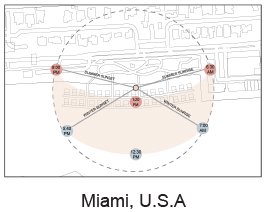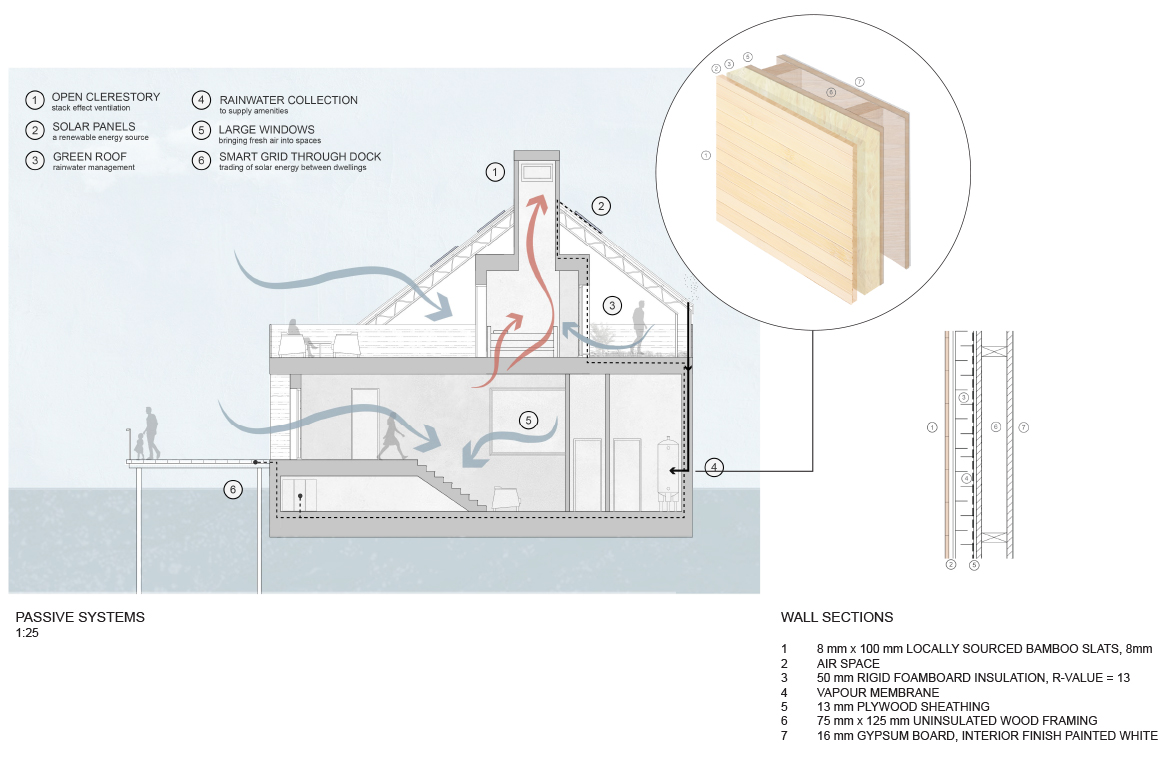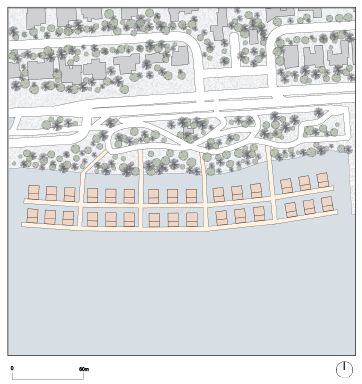Melina Elefteriadis, Andrea Estarez, Angela Intong, Jane Schaffhauser
Carbon Positive Affordable Housing:
Pando Eco-village
Pando focuses on low-income coastal regions that have been disproportionately affected by climate change and resultant rising sea levels. Three targeted sites were examined in Cagayan de Oro, Philippines; Miami, Florida; and Nassau, Bahamas. This floating eco-village typology is designed to rise with the sea level and withstand impending natural disasters, such as heavy rain, high-velocity winds, and typhoons.
The village is composed of individual units comprising a prefabricated modular core living space and an outer “second skin”. This skin consists of an aluminum framed structure and clear polycarbonate roof sheathing that shields the dwelling from severe weather conditions. Both the core and the outer shell have been designed to be easily replaced and quickly assembled in the event of destruction. The use of prefabricated, locally sourced materials such as bamboo enable more affordable construction costs.
Pando addresses carbon positive design through implementing passive design strategies for hot and humid climates: large operable windows, an internal atrium for natural ventilation, a humidity absorbing green roof terrace, and an air-tight wall assembly for an energy-efficient building. The units are equipped with photovoltaic solar panels oriented and angled to maximize sun exposure, allowing each unit to produce renewable energy. Energy produced with these panels will be shared with the entire village using a smart-grid network, lowering overall utility costs and energy consumption, mimicking the synergetic root system of the Pando organism.
Carbon Positive Affordable Housing:
Pando Eco-village
Pando focuses on low-income coastal regions that have been disproportionately affected by climate change and resultant rising sea levels. Three targeted sites were examined in Cagayan de Oro, Philippines; Miami, Florida; and Nassau, Bahamas. This floating eco-village typology is designed to rise with the sea level and withstand impending natural disasters, such as heavy rain, high-velocity winds, and typhoons.
The village is composed of individual units comprising a prefabricated modular core living space and an outer “second skin”. This skin consists of an aluminum framed structure and clear polycarbonate roof sheathing that shields the dwelling from severe weather conditions. Both the core and the outer shell have been designed to be easily replaced and quickly assembled in the event of destruction. The use of prefabricated, locally sourced materials such as bamboo enable more affordable construction costs.
Pando addresses carbon positive design through implementing passive design strategies for hot and humid climates: large operable windows, an internal atrium for natural ventilation, a humidity absorbing green roof terrace, and an air-tight wall assembly for an energy-efficient building. The units are equipped with photovoltaic solar panels oriented and angled to maximize sun exposure, allowing each unit to produce renewable energy. Energy produced with these panels will be shared with the entire village using a smart-grid network, lowering overall utility costs and energy consumption, mimicking the synergetic root system of the Pando organism.











